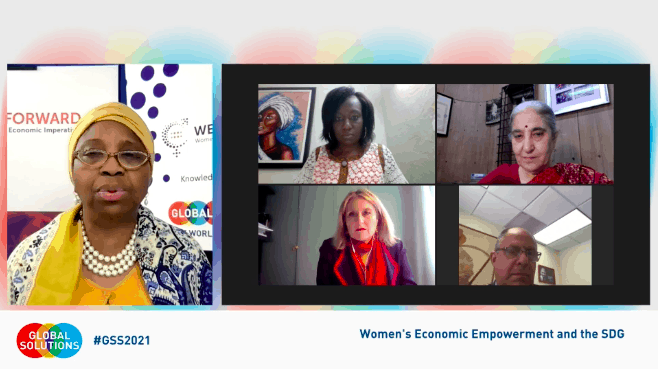The United Nations Secretary General’s High-Level Panel (UNHLP) on Women’s Economic Empowerment (WEE) was established by then-UNSDG Ban Ki-moon in 2016 “to address the specific economic issues that affect women and to support the implementation of the 2030 Agenda for Sustainable Development and its promise to leave no one behind.” His successor, António Guterres has affirmed and expanded this commitment recognizing that “Women’s economic empowerment is at the heart of the 2030 Agenda. We will not achieve the Sustainable Development Goals if there is no accelerated action to empower women economically. We know that women’s participation in all spheres of life, including in the economy, is essential to sustainable and durable peace and to the realization of human rights”. Despite the progress achieved in the last years, the COVID-19 pandemic poses a threat for gender equality, as it has deepened pre-existing inequalities and structural barriers that limit equal access and distribution of opportunities in the marketplace (unemployment, low wages, vulnerable jobs), as well as at home (burden of unpaid care work, violence against women). Additionally, certain groups of women (women of colour, migrants, youth) are being disproportionally affected by these limitations. The economic contributions of women are critical for sustainable economic growth and stability. Gender equality is a moral imperative and good economics, as it increases productivity, sinks poverty and allows societies to thrive. Estimates show that gender equality would add between US$ 12-28 trillion to the global economy in 2025. Globally, women spend more than twice as much time on unpaid care and domestic work than men on average. A recent UN WOMEN Report suggests that, as a consequence of the pandemic, 96 million people will be pushed into extreme poverty, increasing the number of women living in this condition to 435 million. In this final decade of the 2030 Agenda for Sustainable Development, it is of paramount importance to identify and implement policy solutions to address gender inequities and improve social, health, and political outcomes for T20 countries and globally. For this purpose, the panel aims at promoting discussions and influencing stakeholders to remove constraints and unleash women’s potential in the economy and development of their societies.






